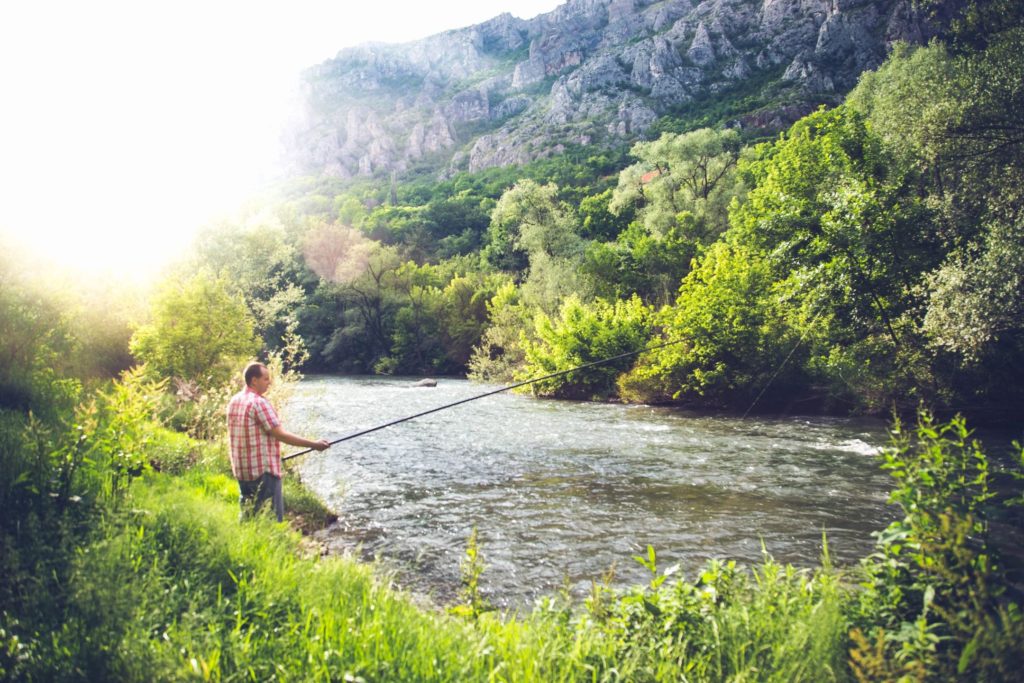Three Natural Ways to Reduce Mosquito Bites

Mosquitoes are a persistent annoyance during the summer months, and while we can empathize with the fantasy of totally eradicating these biting insects in a tornado of poisons, we at the National Wildlife Federation encourage people to avoid insecticide sprays in favor of more natural solutions.
Spraying to kill adult mosquitoes isn’t an effective solution. There’s no way to avoid having a fatal impact on beneficial insects, such as bees and butterflies, and other wildlife when spraying broad-spectrum insecticides (regardless of what companies who spray tell you).
Here are three better, more natural ways of reducing the chance of being bitten by mosquitoes this summer as you enjoy your outdoor spaces.
Eliminate Breeding Spots

First, focus on larval control by eliminating the standing water where mosquito lay their eggs and go through their aquatic larval stage. This is more effective at reducing mosquito populations in your yard than spraying for adults. Clogged gutters that hold small pools of water are a favorite breeding spot. Clean them out and install screening on top to prevent debris from collecting and holding water. Check kids’ playsets and toys, garden décor, outdoor debris or any other place that holds standing water and drain it.
Mosquitoes take five to seven days to complete their metamorphosis into winged adults so empty and refill birdbaths every two days and you’ll eliminate any eggs or larvae. For garden ponds or any other water source you cannot drain, add the natural soil bacterium called Bacillus thuringiensis or “Bt” which targets mosquito larvae and other biting flies but is essentially harmless to other wildlife and people. Bt is sold in most garden or home improvement centers and online as “mosquito dunks” or “mosquito bits.” You can also add a pump or fountain to keep the water surface moving, which reduces the chances of adult mosquitoes laying eggs there.
Use Repellents

Second, make it harder for mosquitoes to bite you. Repellents applied to the skin or clothing that use Picaridin and DEET are most effective, as are those with the oil of lemon eucalyptus if you’re looking for a more natural option. Devices that emit repellentcan be effective in areas such as a patio, porch, pool area or a small backyard. Mosquitoes are not strong flyers so another simple solution is to install a few large fans which will blow most mosquitoes away before they can get close you. Wear loose-fitting long sleeves to minimize exposed skin.
While not a repellent, traps that lure mosquitoes can be effective but there’s also the possibility that they could attract more mosquitoes to the area.
Enlist Mother Nature’s Help

Third, use Mother Nature’s method for controlling mosquitoes by supporting and attracting mosquito predators. Mosquitoes are on the menu for a wide variety of wildlife, including some species of birds, dragonflies, bats, salamanders, lizards, frogs and spiders.
Create a landscape that supports these kinds of wildlife by following the recommendations of our Garden for Wildlife program. Predators won’t eliminate every last mosquito, but neither will spraying insecticides.
Learn more about a fun family project: How to Build a Bat House
Saving Wildlife Starts at Home

How we fight mosquitoes or confront other problems at home matters. America’s wildlife is in crisis — a point vividly underscored by a recent UN-backed report that showed nearly 1 million species are at risk of extinction due to human activities, including the use of pesticides. Other recent studies have shown an alarming drop in insect populations, leading the New York Times to proclaim that we are causing an “insect apocalypse” that is destabilizing the ecosystem upon which all life on this planet depends. Everyone should do their part this summer to address this global crisis, starting in our own backyards.
Read a more detailed report from our partner Xerces Society on the pros and cons of various methods of mosquito control.
You may also like
-
Conservationists HOF inductees revealed, reward launched in vandalism case: Latest Manitowoc outdoors news
-
Preserve Wisconsin’s legacy: Renew the Knowles-Nelson Stewardship Program | Opinion
-
Fish & Game’s annual meeting, Candlelight Night: Your latest Manitowoc outdoors report
-
Outdoor people, County Vision Outdoorsmen Expo will be on Feb. 8th at the Manitowoc County Expo Grounds.
-
A squirrel hunt and meat raffle, plus more news in the latest Manitowoc outdoors report
